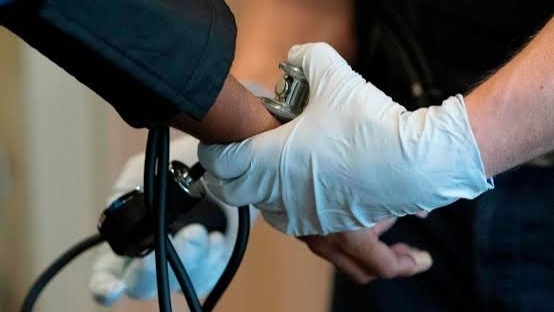Hypertension is often referred to as the ‘silent killer’. Since it has no initial symptoms, but can lead to long-term disease and complications. Almost one-third of the people who suffer from high blood pressure have absolutely no clue about it.
About 1% of people with high blood pressure do not seek medical care until the high blood pressure is very severe, a condition known as malignant hypertension or a hypertensive emergency.
Blood pressure is determined by the amount of blood your heart pumps and the amount of resistance to blood flow in your arteries. The more blood your heart pumps and the narrower your arteries, indicates the higher blood pressure.
Even without symptoms, damage to blood vessels and your heart continues and can be detected. And once you know you have high blood pressure, you can work with your doctor to control it. In this article we will see signs and symptoms of high blood pressure, but before we learn about symptoms of high blood pressure let us understand what causes High blood pressure.
What Causes High Blood Pressure?
The causes of hypertension are multifactorial, meaning there are several factors whose combined effects produce hypertension. For better understanding of causes we can divide these factors in two groups. Factors that cannot be changed and another group of Factors that can be changed.
Factors that cannot be changed -
Age:
The older a person is, the greater the likelihood that he or she will develop high blood pressure this is due to arteriosclerosis, or "hardening of the arteries."
Family history :
There can be higher chances to have high blood pressure if it runs in your family background. People who have one or two parents with hypertension have high blood pressure incidence about twice as high as the general population.
Gender:
Generally men have a greater likelihood of developing high blood pressure than women, especially below the age of 50. After the age of 50, women are at a higher risk for the disease because of menopause.
Race:
High blood pressure is particularly common among people of African heritage, often developing at an earlier age than it does in Caucasians. serious disease like stroke, heart attack and kidney failure, also are more common in people of African heritage.
Factors that can be changed-
Drinking too much alcohol:
Drinking more than one to two drinks of alcohol per day tends to raise blood pressure in those who are sensitive to alcohol. If you drink alcohol, do so in moderation.
You can checkout our artical on “
How to leave Alcohol" where we have shared tips that can help you to leave alcohol and guide you for your next move towards leaving Alcohol.
Too much salt (sodium) in your diet:
Some people have high sensitivity to sodium and consuming too much sodium in your diet can cause your body to retain fluid, which increases blood pressure. This occurs in certain populations such as the elderly, African Americans, people who are obese, or people with kidney (renal) problems.
Using tobacco:
smoking or consuming tobacco in any other form can, not only raise your blood pressure temporarily but the chemicals present in tobacco can damage the lining of your artery walls, which can cause your arteries to narrow and increase your risk of heart disease.
The best way to stop this is to quit smoking or any other kind tobacco consumption, as this not only affect the persons who consume but it work similar for second hand smoker. We recommend you to check this article on “
how to quit smoking".
Not being physically active:
A sedentary lifestyle contributes to the development of obesity and high blood pressure. Lack of physical activity also increases the risk of being overweight.
You can take a 30 minutes workout or Yoga daily to keep you active throughout the day. If you are willing to take action we recommend you to read “
article on yoga" that can help you to stay healthy
What Are the Signs and Symptoms of High Blood Pressure?
High blood pressure usually causes no symptoms and high blood pressure often is labelled "the silent killer." Regular blood pressure testing is the only conclusive way to make sure that your blood pressure is in the normal range.
But if you pay attention to your body, it might send out some early signs of hypertension.The warning signs depend on the severity and duration of pressure. These symptoms include:
High blood pressure brain symptoms:
- Headache
- Dizziness
- Blurred vision
- Nausea and vomiting
High blood pressure and heart symptoms:
- Chest pain
- Shortness of breath
- Weakness
- Nausea and vomiting
Ignoring the warning signs & symptoms could be dangerous to your health as uncontrolled hypertension increases the risk of severe damage to the body’s vital organs. It is always a good advice to concern you doctor and ask your doctor for a blood pressure reading at least every two years starting at age 18.
If you don't regularly see your doctor, you may be able to get a free blood pressure screening at a health resource fair or other locations in your community.
Now you know what causes hypertension and it's signs and symptoms. If you are new to our blog and you liked our information make sure to follow us and subscribe to our blog via email and we will mail you everytime we post something new.
STAY HEALTHY
STAY HAPPY














Post a Comment
0 Comments
If you have any doubt please let me know.